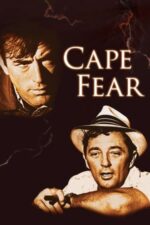
Gregory Peck
Date of Birth:
Gender: Male
Place of Birth: La Jolla, California, USA
Biography:
Born on April 5, 1916, Eldred Gregory Peck would go on to become one of Hollywood's most revered actors from the 1940s through the '70s. In 1999, the American Film Institute ranked him as the 12th-greatest male star in Classic Hollywood Cinema.
Peck began his acting journey studying at the Neighborhood Playhouse with Sanford Meisner before taking to the stage, appearing in over 50 plays and three Broadway productions. His first significant success came with The Keys of the Kingdom (1944), a drama directed by John M. Stahl that earned him his initial Academy Award nomination. He followed this up with a series of successful films, including romantic-drama The Valley of Decision (1944), Alfred Hitchcock's thriller Spellbound (1945), and family film The Yearling (1946).
However, the end of the '40s saw Peck encountering lukewarm commercial reviews with films like The Paradine Case (1947) and The Great Sinner (1948). The 1950s and '60s were a different story, as he reached global recognition through back-to-back roles in Captain Horatio Hornblower (1951), a book-to-film adaptation, and biblical drama David and Bathsheba (1951). He also starred alongside Ava Gardner in The Snows of Kilimanjaro (1952) and Audrey Hepburn in Roman Holiday (1953), which earned Peck a Golden Globe award.
Some other notable films featuring Peck include Moby Dick (1956, and its 1998 mini-series), The Guns of Navarone (1961), Cape Fear (1962, and its 1991 remake), The Omen (1976), and The Boys from Brazil (1978). Known for playing protagonists with "fiber" within a moral setting, Peck tackled important social issues in films such as Gentleman's Agreement (1947) about antisemitism and Twelve O'Clock High (1949), which addressed post-traumatic stress disorder during World War II.
In 1962, he won the Academy Award for Best Actor for his portrayal of Atticus Finch in To Kill a Mockingbird, an adaptation of Harper Lee's modern classic that focused on racial inequality. For this role, Peck received universal acclaim. In 1983, he starred opposite Christopher Plummer in The Scarlet and The Black as Hugh O'Flaherty, a Catholic priest who saved thousands of escaped Allied POWs and Jewish people in Rome during World War II.
A committed political activist, Peck challenged the House Un-American Activities Committee in 1947 and was regarded as an opponent by President Richard Nixon. In 1969, President Lyndon B. Johnson honored Peck with the Presidential Medal of Freedom for his lifetime humanitarian efforts. Tragically, Peck passed away in his sleep at the age of 87 due to bronchopneumonia.
Social Media:







































